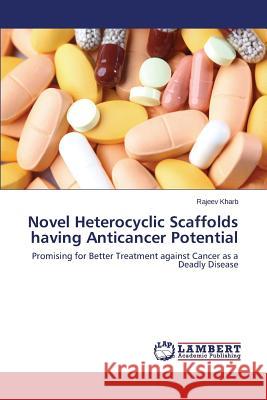Novel Heterocyclic Scaffolds having Anticancer Potential » książka
Novel Heterocyclic Scaffolds having Anticancer Potential
ISBN-13: 9783659477850 / Angielski / Miękka / 2015 / 76 str.
Cancer is a serious global health concern as it is a deadly disease being responsible for about 13% of total death tolls globally and at present, cancer is the second leading cause of death in the world after cardiovascular diseases as reported by WHO. Despite advances in cancer research, the overall survival of cancer patients remains low. Inherent and acquired resistance to treatment and the dose-limiting toxicity caused by the narrow therapeutic window of many anticancer drugs are recognized as obstacles for effective treatment of cancer. As per recent literature, it has been found that novel heterocyclic derivatives such as imidazole, triazole, thiazole, benzothiophene, coumarin, furan and isoxazole derivatives as anticancer drugs are lesser toxic, experience lesser resistance from cancerous cells and capable of targeting tumor DNA more specifically as compared to currently used anticancer drugs. Therefore, this communication is an endeavor to update the recent advances and development in the field of cancer research to develop novel anticancer agents for future having better safety and site specific receptors binding for effective treatment of cancer as a deadly disease.
Cancer is a serious global health concern as it is a deadly disease being responsible for about 13% of total death tolls globally and at present, cancer is the second leading cause of death in the world after cardiovascular diseases as reported by WHO. Despite advances in cancer research, the overall survival of cancer patients remains low. Inherent and acquired resistance to treatment and the dose-limiting toxicity caused by the narrow therapeutic window of many anticancer drugs are recognized as obstacles for effective treatment of cancer. As per recent literature, it has been found that novel heterocyclic derivatives such as imidazole, triazole, thiazole, benzothiophene, coumarin, furan and isoxazole derivatives as anticancer drugs are lesser toxic, experience lesser resistance from cancerous cells and capable of targeting tumor DNA more specifically as compared to currently used anticancer drugs. Therefore, this communication is an endeavor to update the recent advances and development in the field of cancer research to develop novel anticancer agents for future having better safety and site specific receptors binding for effective treatment of cancer as a deadly disease.











